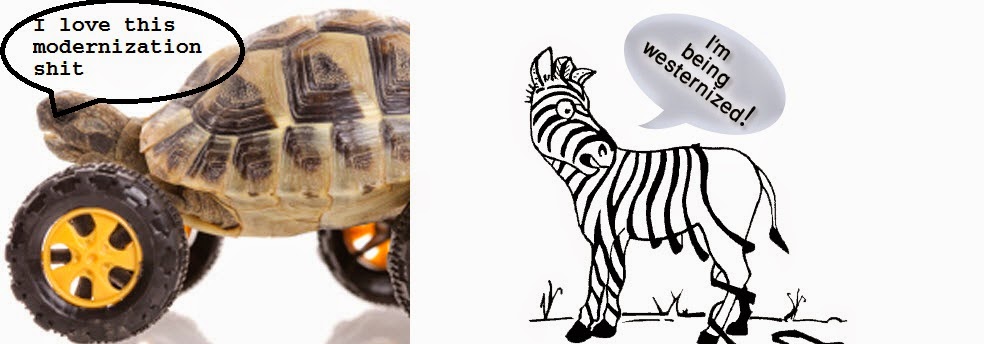I remember as a child, my interest in literature was insatiable in so many ways, I read all the books I could lay my hands on without any care if it was rated or not, anything in print was so pleasant to read and from the day I discovered how to check the meaning of words from a dictionary, I became unstoppable. Somehow I found my way into my dad’s small library, and I took pleasure in stealing a book at a time without permission (I never really needed any). I was in primary school when I stumbled on a book on “How To Get Rich In The 80s” and I read it. The rules are still the same now, only the years have changed. I’m not working with the rules yet and that’s really not important for now. There was this particular book that I’d found, it was suppose to be a children book but for some funny reason, it was hidden away in the book shelf, and because we were more busy listening to “Alo” the African folktales that were filled with tortoise the Ijapa and Erin the Elephant, Santa wasn’t really important to us until December. I read the book anyways, it was titled “The Year Santa Went Modern” written by Richard Armour in 1964 and the pictures were drawn by Paul Galdone. I read it in the early 90s though, not 1964… “I never old reach that level”.
The book was all about how Santa discovered the magic of shaving, and how it transformed his identity and lifestyle from a permanent North Polar to a man that could come out in summer without being noticed, and the beauty of his embrace of this modern transformation without him losing his identity, he remained Santa, and he still lives in the North Pole with his white beard hanging on a reindeer horn, waiting to be strapped on in Winter. The story was a perfect definition of modernization, a truth that we all need to understand and embrace.
According to my dictionary, modernization is the act of modernizing; the state of being modernized. It refers to a model of a progressive transition from a ‘pre-modern’ or ‘traditional’ to a ‘modern’ society. In sociology, it is the transformation from a traditional, rural, agrarian society to a secular, urban, industrial society, it is a change in societal tendencies, an embrace of growth, new ideas and technology, it is an appreciation of modern development and culture and not a total loss or change of identity. Westernization on the other hand is “to convert to the customs of Western civilization.” I hope you noticed the different words “embrace”, “transition”, “convert”.
Modernization can be likened to a rich Ijebu King who own plenty horses and chariots and on one of his business travels, comes in contact with an automobile. He sits down to understand the ability of an automobile, the advantages and disadvantages over riding chariots and learns how to drive it. He buys one and uses it to make long distance travels, knowing that it could break down and he learned how to keep it going. He keeps his horses and uses them for short distances and for his pleasure rides around his community. His horses become classic and his automobile gives him a new status and identity. Just like on the back of his horses, he uses his “pako” (chewing stick) behind the steering wheels and wears his Agbada and Baba Riga behind the wheels as well. Sometimes he tries those fitting shirts he got has gifts from the dealer on the back of his horses and they do just fine. After all he’s now an Ijebu man that drives a car, the fact remains that he’s an Ijebu man so owning a car should not stop him from chewing a pako, and no matter how sophisticated he gets, his princes will never be entitled to the throne of England so he drives his car and pours libation to the gods of his father in stainless steel bowls and drinks his palm wine in calabashes. When the car breaks down and it can’t be fixed immediately or needs a part in town, he rides into town with his horses and chariot, gets the needed part and gets his automobile back to work.
Westernization on the other hand can be likened unto an Ekiti King who owned many horses and on a journey, he comes in contact with an automobile. Out of excitement, he exchanges his horses for the automobile without thinking that his horses were valuable enough to earn him the new discovery. He learns how to drive only after trading his horses in and quickly drives back to his kingdom; killed what remains of his stable, turned it to a garage and uses the skin of the horses to design his new car park. Because he now drives an automobile, he throws out his pako and drives around in his ride with toothbrush in mouth and saliva dripping from the corner of his lips. He bans the use of horses throughout his kingdom and throws out all of his local garbs, wearing only the white silk shirt he was given by the automobile dealer until he was ragged and yet he never relented. He thought to himself, “the wisdom of making an automobile is worth worshiping” and he did until it broke down, and there was no way to get to town to get the parts for fixing it.
The Ekiti king’s automobile must be fixed because it is his new god so he embarks on a journey back to town in his dead automobile. He puts his sons and men in front with ropes, using them as horses, pulling and tugging while he sits in the dead cart as they pull along. Surprisingly on arrival in town, he was greeted by the son of his auto dealer on the back of one of the horses he traded for his automobile. His sons looked tattered with blisters on their foot from pulling a dead automobile with ropes, he looked more miserable in his white silk turned brown as saliva drips down the corner of his mouth and he cleans it with the collar of his silk shirt. The son of the dealer welcomes him and announces that his sister was getting married, he took them in, gave them a change of clothing and invited them to the wedding not as princes but as guests. They arrived at the venue, only to find the bride in heavily pleated “Aso Oke” with beads on her neck, and the groom in a black suit, a perfect blend of what the dealer had and what they had thrown away. What happened to the Ekiti king is westernization, it is the adoption of Western culture; the social process of becoming familiar with or converting to the customs and practices of Western civilization without caution, throwing away ones own traditional and cultural heritage and identity without a total understanding of the new culture we are converting to.
Western culture in itself is the amalgamation of diverse identities, languages, cultures and traditions for centuries without destroying the background from which it evolves. Asian countries are far ahead on the development curve compared to African countries, their growth and development is divinely etched into their culture and tradition, and their technology is totally developed around their identity with their language and belief written all over every stride they make. China is modernized and not westernized, that is why America is on the list of her debtors, Nigeria is westernized and not modernized, that is why we are on the debt list of any western nation you can think of. The Middle East is modernized not westernized, that is why her culture is preserved on the path of jaw dropping growth and unimaginable development. Westernization is slavery. Modernization is freedom! Modernization is the real reason why the queen still wears a crown!
It is share stupidity for any society to throw out its own culture and tradition in the name of westernization, there is room enough for evolving and modernizing, for embracing new ideas, and preserving the old. Don’t westernize my friends, modernize like Santa did, cut your beard, shed your cloak and keep them fresh so that you can enjoy summer without a wedge. Winter is coming and when it comes, you will need your old cloak and white beard again or else, the old magic of the sledge will be gone and there will be no Christmas.
I’m Abidemi Babaolowo Oderinlo
#IWriteWhatILike


Good stuff
Thanks Mr. Adela… I hope to keep educating people more about who they are so that they we can end mind slavery and truly be free.